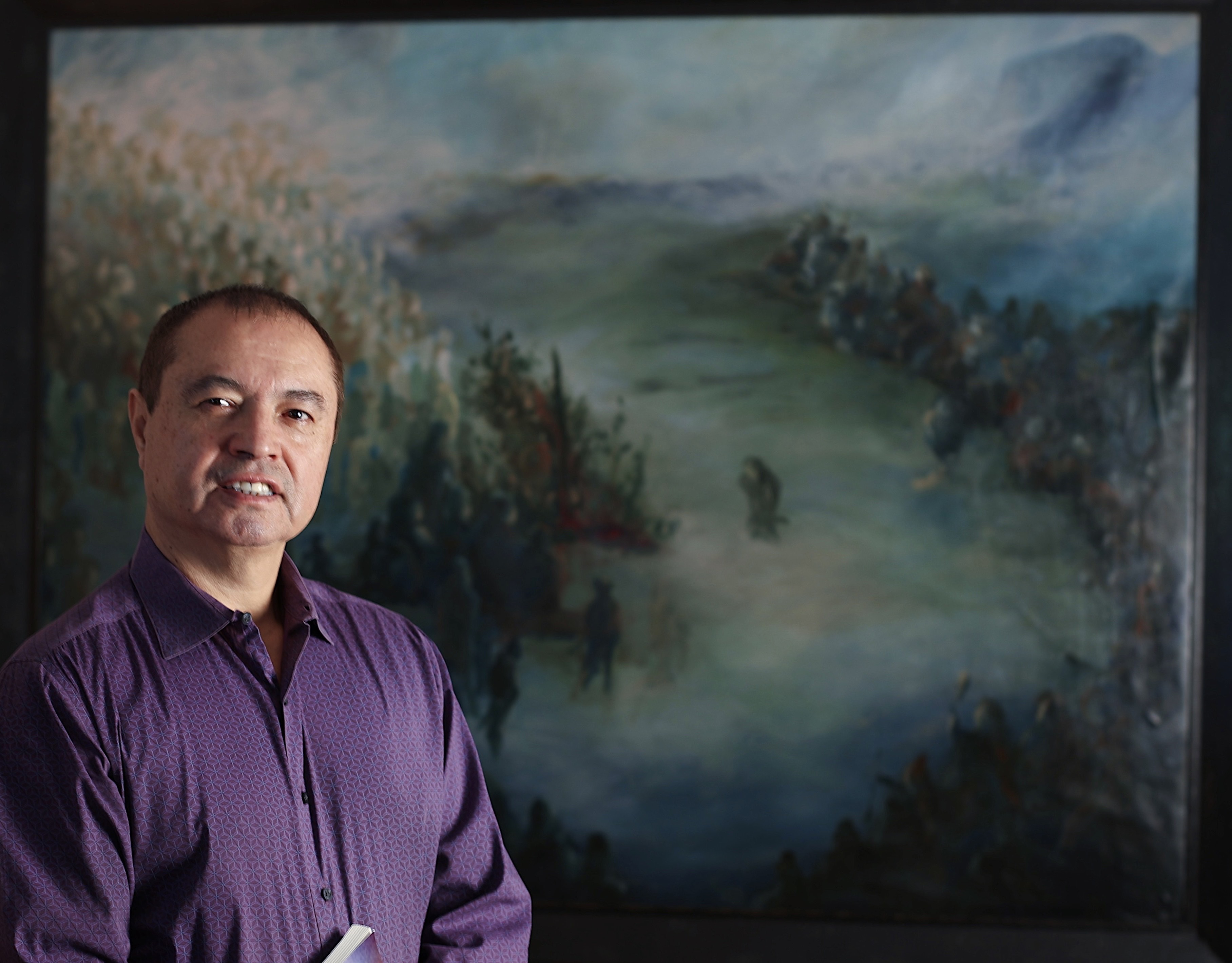In Times of Acoustic Colonialism: The Enduring Sounds of the Mapuche
-
Luis E. Cárcamo-Huechante, Spanish and Portuguese, The University of Texas at Austin
Coach House, Green College, UBC and livestreamed
Thursday, November 30, 5-6:30pm with reception to followin the series
Sound, Silence, Power -
This talk will offer a critical analysis on some of the ways in which radio, music and language have become sites for what I term as “Indigenous interferences” by Mapuche singers, artists and media activists in what is today known as Chile. In my view, these forms of Indigenous agency in the sphere of sound disrupts the airwaves of what I call "acoustic colonialism," that is, the aural and sonic regime by which the Chilean state and settler agents have deployed linguistic, environmental, and technological sounds in efforts to culturally and racially marginalise or assimilate the Mapuche people while exercising a colonial logic of territorial occupation and dispossession in native lands. Mapuche radiophonic, musical and linguistic interferences embody aural, cultural and political manifestations of an “enduring indigeneity” that challenges the hegemonic waves of acoustic colonialism.
This event is co-hosted with the Sound and the Humanities Research Cluster, UBC.
 Luis E. Cárcamo-Huechante is a Mapuche scholar. He is currently the Director of the Program in Native American and Indigenous Studies (NAIS) and an Associate Professor of Spanish at The University of Texas at Austin. Between 2019 and this year, he served as a member of the Council of the Native American and Indigenous Studies Association (NAISA). Professor Cárcamo-Huechante is a founding member of the Comunidad de Historia Mapuche, which is a collective of Mapuche researchers/activists based in southern Chile. In 2007, he published his first book, Tramas del mercado: imaginación económica, cultura pública y literatura en el Chile de fines del siglo veinte (Santiago: Editorial Cuarto Propio). Professor Cárcamo-Huechante has just completed his second book, titled Indigenous Interferences: Acoustic Colonialism and Mapuche Response, which is now under review at a major university press in the United States.
Luis E. Cárcamo-Huechante is a Mapuche scholar. He is currently the Director of the Program in Native American and Indigenous Studies (NAIS) and an Associate Professor of Spanish at The University of Texas at Austin. Between 2019 and this year, he served as a member of the Council of the Native American and Indigenous Studies Association (NAISA). Professor Cárcamo-Huechante is a founding member of the Comunidad de Historia Mapuche, which is a collective of Mapuche researchers/activists based in southern Chile. In 2007, he published his first book, Tramas del mercado: imaginación económica, cultura pública y literatura en el Chile de fines del siglo veinte (Santiago: Editorial Cuarto Propio). Professor Cárcamo-Huechante has just completed his second book, titled Indigenous Interferences: Acoustic Colonialism and Mapuche Response, which is now under review at a major university press in the United States.This event is co-hosted with the Sound and the Humanities Research Cluster, UBC. Dr. Cárcamo-Huechante is shown here beside a painting by Mapuche artist Eduardo Rapiman titled Trawün, which is a type of Mapuche assembly or gathering of local territory/community-based tribal representatives and community members.

Attending to sound opens up myriad potentialities. While historically silence has been wielded as an instrument of oppression, and listening practices have served to categorize acoustic expressions into hierarchical binaries—sound/noise, melody/racket, speech/babel, human voice/animal howl—recent scholars, practitioners and ordinary people have become attuned to the ways in which sound and listening may prove a potent source of empowerment, resistance and care. This series attends to the decolonizing and disruptive potential of sound in its many manifestations. Through a speaker series with some of the most dynamic thinkers in humanistic sound studies, as well as reading groups and a capstone symposium, participants are invited to note the entanglement of sound, silence and power in our everyday lives, politics and dwelling.
Join us for invited speakers exploring the potentialities of sound from a diversity of disciplinary perspectives, including Black Studies, Indigenous Studies, Gender and Sexuality Studies, More-than-Human Geographies, Transpacific Studies, Decolonial Studies and Disability Studies.
Series Conveners: Tamara Mitchell, French, Hispanic and Italian Studies; and Rosanne Sia, Gender, Race, Sexuality and Social Justice

-
Unless otherwise noted, all of our lectures are free to attend and do not require registration.
Custom Lecture Fields
|